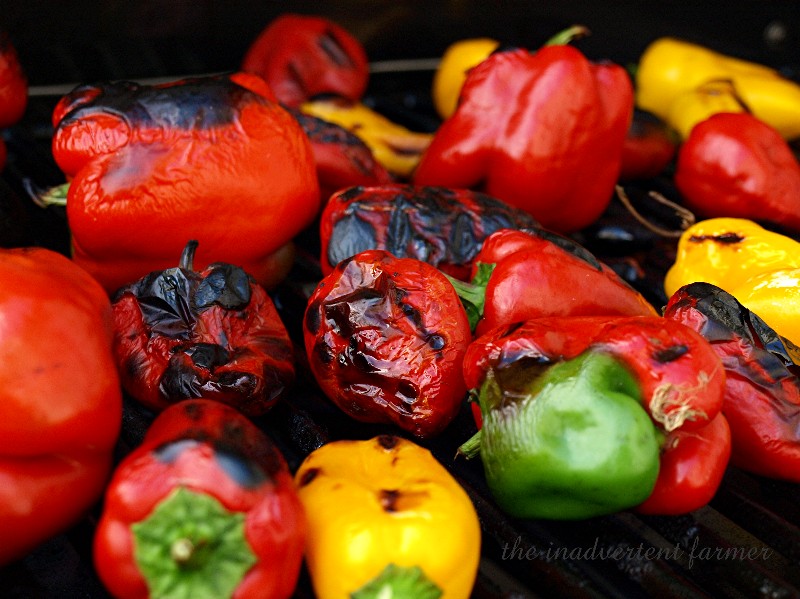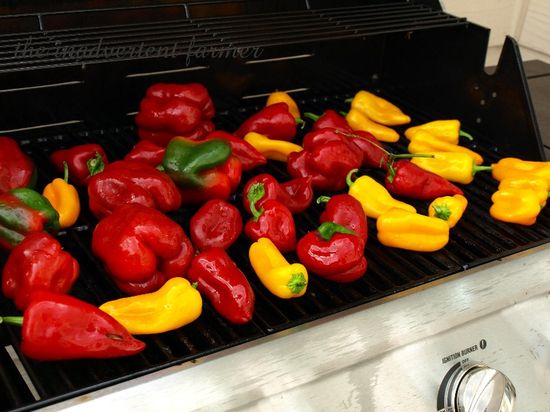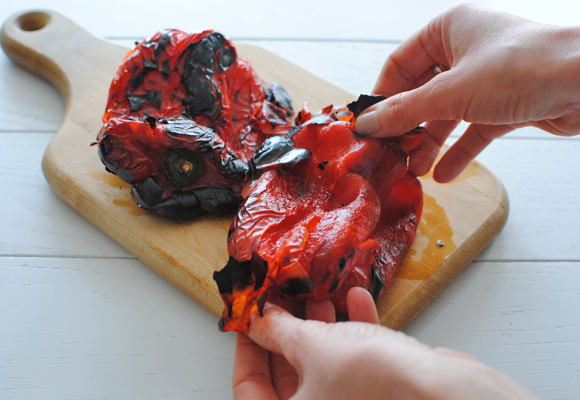Roasted Peppers—The Key to Ultra Taste

Roasting peppers adds a smoky flavor that can enhance any recipe—it’s considered by professional chefs to be a key to ultra taste. Or, roasted peppers can even be served as an appetizer or side dish. They can be substituted in any recipe calling for peppers, and they are fantastic in any fresh salsa recipe. The object of the roasting is to char the pepper’s skin so that it will peel away easily.
We like them so much that I will often add diced roasted peppers to our store-bought salsa. Saying they enhance a recipe is truly and understatement.
Many people buy roasted peppers in cans, but it's so easy to do it yourself, and the flavor is so much better, that you really should roast your own. Though you can use a lot of different cooking equipment to roast a pepper it is best done over a live fire, like that from your gas or charcoal grill.
It’s important to use fresh roasted peppers soon. They can be stored in the refrigerator for a day or two, but they are best when used right after roasting. Also, washing the peppers after you have scraped of the skin will cause them to lose some of their flavor, so if you want to hold on to the heat, keep them away from the water.
In the cookbook, Forks Over Knives, I found a great tutorial on how to roast peppers: “To roast peppers on a gas stovetop, hold the whole pepper over an open flame and roast, turning frequently, until the pepper is black all over. You can either hold it by the stem, if it is strong and sturdy enough, or use heatproof tongs; either way, use caution.
“To roast peppers in an oven, put washed peppers in a cast-iron skillet or roasting pan, and roast them for about 45 minutes to 1 hour at 400°F. Remove the pan from the oven, put the peppers into a plastic bag or heat-proof container with a lid, and let them sweat until cooled. When the peppers are cool, peel off the charred or blackened skin; the degree to which it is charred will depend on the roasting method and the extent to which the peppers have been roasted. Perfectly roasted peppers will retain their body but will be softened throughout, and the skin will slip right off.”

Whether you’re using a grill, the oven, or a gas burner, though, the peppers may collapse on themselves and they may ooze, but that’s fine.

When the skin is black and blistered, carefully (they’re hot and the liquid inside of them is even hotter) put the peppers in a bowl and cover them
with a plate or put them in a bag and close the bag. Then, when the peppers are cool enough to handle, use your fingers to peel away the skin.
Slice the peppers to open them, remove the seeds and cut away the interior spines. Then make a decision about how large or small you’d like your
pepper pieces to be. I usually cut each pepper into three sections.

On a cool site, www.doriegreenspan.com, I found a great idea—the author says: “If I’m not
serving the peppers right away, here’s my favorite thing to do. I layer the peppers cut-side down in a Pyrex® loaf pan. When I’ve got one
layer, I sprinkle it with salt (usually fleur de sel), season it with coarsely ground black pepper, strew over some chopped fresh herbs (using whatever I
have on hand, but I think chives, thyme, oregano, parsley and rosemary are great with peppers), add some garlic sliced super-thin, and finish with some
finely grated lemon zest. Then I moisten the layer with extra-virgin olive oil. You can brush the oil on or pour it on. Keep layering, cover the pan and
chill the peppers for a few hours or for as long as a couple of days.”
I tried this recently and we just ate them as an appetizer—they were fantastic. So if you’d like to take the flavor factor of any dish calling for peppers up several notches, do try roasting them. Or if you’re just looking for a new and interesting addition to your appetizer repertoire, roasting peppers is a great place to start!
- www.sweetgrace.typepad.com
- www.tablespoon.com
- www.doriegreenspan.com
 Alice Osborne
Alice Osborne
Weekly Newsletter Contributor since 2006
Email the author! alice@dvo.com
